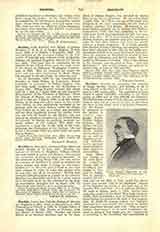

Brookby (or BRORBEY), ANTHONY, Friar Minor and English martyr; d. July 19, 1537. Brookby was lecturer in divinity in Magdalen College, Oxford, was well versed in Greek and Hebrew, and enjoyed the reputation of being an eloquent preacher. At the command of King Henry VIII, who took offense at a sermon of Brookby’s in which he attacked the king’s actions and mode of living, he was apprehended, put to the rack, and tortured in the most cruel manner in order to make him retract what he had said; but all to no purpose. Having been rendered wellnigh helpless as a result of his tortures, Brookby was charitably cared for by a pious woman for a fortnight until, by the command of the king, an executioner strangled him to death with the Franciscan cord which he wore around his waist.
STEPHEN M. DONOVAN

